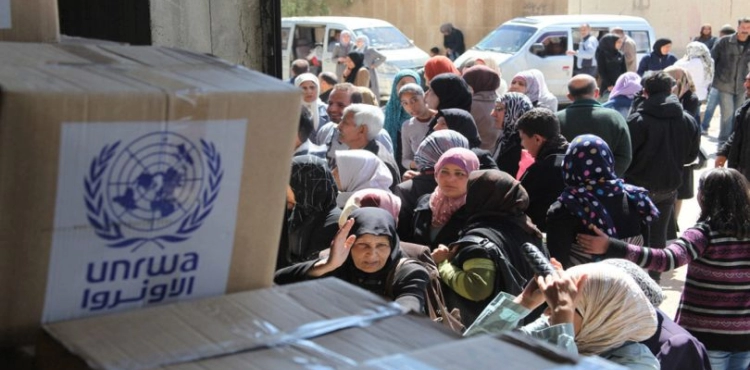The United Nations World Food Program warned today, Tuesday, that nearly 8 million Syrians are at risk of food insecurity after confirming the emergence of new cases of Corona virus in the country.
"The Syrians will need support from the program more than ever to stay in good health, especially given the already fragile situation in this country," program spokeswoman Elizabeth Byers said at a remote news conference. The spokeswoman said that Syria is facing a gradual closure due to the "pandemic", which means that families are at risk of falling into poverty due to loss of income, the deterioration of the economy, and high food prices, noting that this would "become a nutritious and adequate diet necessary to strengthen the immune system." They have out of reach for many. " She noted that the recent review of the World Food Program in Syria regarding the rise in food prices revealed that families are increasingly dependent on negative coping strategies and this includes reducing the number and sizes of meals they eat every day and selling livestock and assets in order to purchase food and the impact on debt. At the same time, the spokeswoman drew the attention of more than 939,000 people due to the escalating conflict in northwestern Syria since December 2019 and they are now living in densely populated camps where the spread of the virus can have devastating consequences. She stressed the necessity of continuing to provide life-saving food aid to those affected, especially since the program provided this month in March to nearly a million and a half million people throughout northwestern Syria. Byers stressed the importance of the World Food Program continuing to deliver food to these families through its cross-border operations from Turkey as this food is necessary to maintain the strength of people and build their immune systems. She also indicated that the World Food Program provides life-saving food to about 4.5 million people in Syria every month, noting that it is now working to increase distribution cycles and working hours during the day, establish hand washing stations, support beneficiaries to practice social spacing at distribution points, and use short messages to inform families when They can gather help to avoid crowding. At the same time, she warned of the consequences of the suspension of the WFP school feeding program after the closure of all schools due to the spread of the virus, which will affect more than a million children, especially as this food provides children throughout the country with the nutrients they need to stay in good health. The spokesperson said that the World Food Program in Syria is searching for alternatives so that these children will not go hungry. According to the data of the World Food Program, 11 million people in Syria are classified as needing humanitarian assistance, including 7.9 million people who suffer from food insecurity inside Syria, including 6 million Syrians displaced within their country. It indicated that 75 per cent of these people live in extreme poverty and that the World Food Program will need more than $ 181 million to fund its programs until next August.












